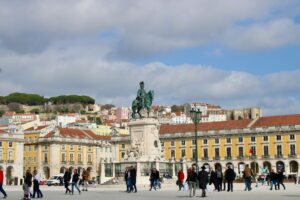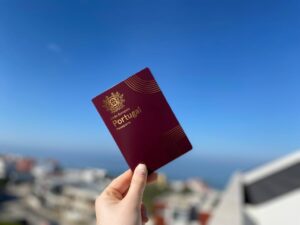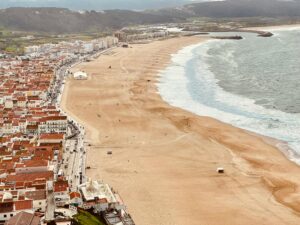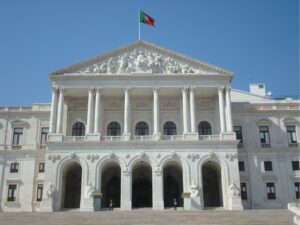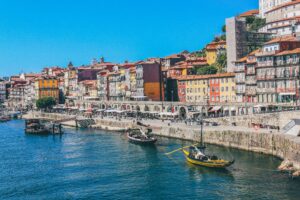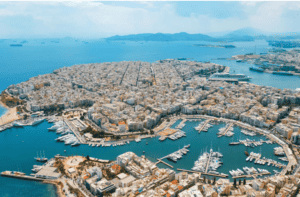Last week, Portuguese Parliament debated the Government’s proposals to amend the Nationality Law and tighten immigration rules.
The debate was heated. In the end, the Government withdrew its proposal from a general vote and requested that the amendments to the Nationality Law and Immigration Law return to the parliamentary committee stage for more detailed discussion. There will be no vote at this stage, with the aim of securing broader consensus with opposition parties.
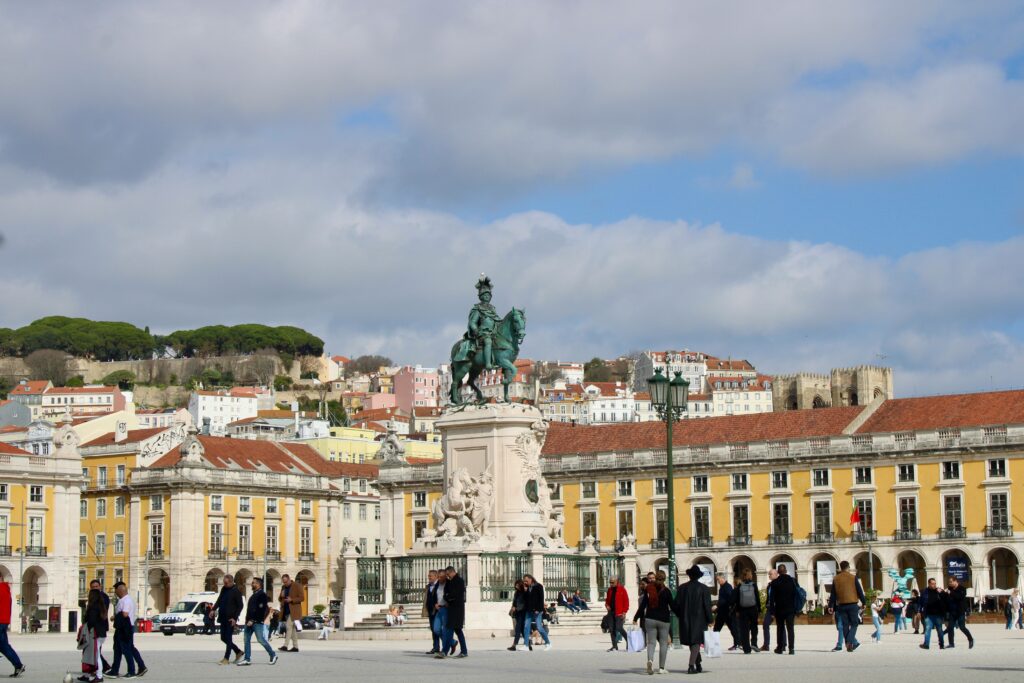
What Was the Proposal and Why?
Here are some of the major amendments included in the draft of the new nationality bill:
- Extending the current residency period for citizenship applications from 5 years to 7 years for Portuguese-speaking countries, and 10 years for other nationalities.
- Changing the calculation of residency periods to start from the date of the first residence card, instead of from the date of application.
- Introducing automatic loss of nationality in cases of serious crimes.
The current government and thus the proposal mainly targets roughly one million new immigrants who arrived in Portugal in recent years due to the previous government’s very relaxed immigration policies, rather than the 50,000 GV investors who do not reside in Portugal. We hope the government will grant exemptions for GV investors, but this remains uncertain. We will have to wait and see. We are closely monitoring the situation.
Why Was the Proposal Withdrawn?
During the debate, the Government acknowledged constitutional limits. The Prime Minister issued a pointed warning to Chega’s leader, stressing that:
“The line that cannot be crossed is the Constitution. None of us can pass an unconstitutional law. That means no loss of nationality, and no automatic revocations that violate the Constitution.”
Two Key Reasons for Concern
1. Warning from the President
As reported in last week’s Friday Briefing, President Marcelo Rebelo de Sousa (also a Constitutional expert and law professor) made clear that once the final legislation reaches him, he will carefully assess any potential constitutional issues. He noted there may be provisions raising serious doubts, saying it would be better to have a definitive ruling from the Constitutional Court to avoid differing interpretations in lower courts.
2. Legal Opinion from Constitutional Experts
The journal Expresso reported that Jorge Miranda, often called the “father” of Portugal’s current Constitution, together with law expert Rui Tavares Lanceiro, issued a legal opinion on the proposals. Their analysis concluded that several elements restricting access to nationality and changing immigration rules raise constitutional doubts, while others are outright inadmissible under the Constitution.
What Are the Key Constitutional Concerns?
The legal opinion identified several issues:
Retroactivity
The government proposed retroactively applying the new nationality law changes to June 19, the day its program was approved in Parliament. Applications submitted from that date onward would be assessed under the new, stricter rules.
- The government justified this by citing a surge in applications seeking to benefit from the current law.
- However, the opinion argues this violates the constitutional ban on retroactive laws that limit rights and undermines Parliament’s authority, as any new laws should not be retroactive.
Residency Period Calculation
The proposed change would double the required residency time (from 5 to 7 years for Portuguese speaking countries and 10 years others) and start counting only from the date a residence permit is granted—not from when the application request is submitted.
- The legal opinion calls this “constitutionally inadmissible,” arguing it creates legal uncertainty, violates equality and human dignity, and unfairly shifts control to the state.
- For example, two people applying on the same day could face vastly different timelines without clear justification.
Note: This is also against the EU law of fairness and equality.
Family Reunification and Access to Justice
The government seeks to restrict urgent legal actions against AIMA (the immigration agency).
- The opinion argues this represents an unjustified restriction on access to justice and violates the principle of proportionality.
- The backlog of administrative cases is seen as the result of AIMA’s own dysfunction, not citizens exercising their fundamental rights.
Revocation of Citizenship
The legal opinion warns that revoking citizenship from naturalized individuals on legal grounds could violate equality, proportionality, and universality.
- It introduces an unconstitutional distinction between citizens by birth (who can never lose citizenship) and those who acquired it through naturalization.
What Happens Next?
- At the committee stage, political parties will debate the proposed amendments, seek consensus, and put forward an alternative proposal.
- The Government intends for these discussions to be short but thorough, aiming for a final text that “unites the country and makes it more cohesive.”
- Any new amended proposal will need to be voted in Parliament again.
- If approved, the bills will then go to the President, who has 20 days to review them. For the Nationality Law, President Marcelo Rebelo de Sousa may request a Constitutional Court ruling.
As of today:
- No date has been set for the next discussion.
- There are no new developments affecting the normal processing of ongoing or new applications under the current law.
⚠️ Note: Parliament will adjourn for its summer recess on July 17 and resume in September. This makes it especially difficult to conclude this legislative process before the end of this session, given the importance of the law in question.
What Does This Mean?
- Nothing has changed yet.
- There will be NO changes to the Golden Visa program.
- Changes to the Nationality Law still need to be further discussed and amended before being presented again for a vote.
Given the controversy the initial proposal generated last week:
- Amendments will likely be more relaxed to increase the chances of passing.
- Some of the major points above were identified as unconstitutional and will likely be changed in the next proposal.
- If they are not amended, there is a high probability of Constitutional Court review.
Some Educated Guesses on Possible Outcomes
✅ Best-Case Scenarios
- The new Nationality Law is not passed.
- Or it is passed with changes that include grandfathering for those already in residency programs (e.g., Golden Visa, D Visas).
⚠️ Worst-Case Scenario
A new Nationality Law passes that extends the residency period requirement beyond 5 years, even for those already in the residency process.
How Can You Prepare For This Change?
We have highlighted the main considerations (if national law extensions get approved) below:
For Portugal Golden Visa Applicants
We strongly recommend that anyone planning to apply for the Portugal Golden Visa apply as soon as possible.
✅ If there is grandfathering, you will want to get in before any deadline.
✅ For those that cannot submit before the deadline (or if there is no grandfathering), you can still follow this path:
- Get your Golden Visa.
- Apply for GV Permanent Residency (PR) after 5 years.
- You can exit your investment.
- Stay requirement is only 14 days per 2 years
- Apply for Citizenship (under the new law).
Step 2: The second step mentioned above can act as a temporary bridge. Here are the main differences between this step and the current direct route from Golden Visa to citizenship:
Acts as a bridge. The differences between this path and the current direct GV-to-citizenship path:
- You need to stay at least 14 days per 2 years for PR renewals.
- You can’t live in other EU countries with your PR (only with citizenship).
- You don’t have voting rights or an EU passport yet.
With this plan you can still:
✅ Live in Portugal if you choose.
✅ Exit your investment after 5 years
In fact, even under the current law, many people choose to get PR first while waiting for citizenship approval.
Note: There is a special PR for Golden Visa Investor that relaxes the days required to stay in Portugal to only 14 days every 2 years.
The Regulation of this law, which is the “Decreto Regulamentar n.° 84/2007, de 05 de novembro”, has an article for GV PR, which exempts them to follow this rule for normal PR:
Artigo 65.º-K
Concessão de autorização de residência permanente a titulares de autorização de residência para atividade de investimento
Aos cidadãos titulares de autorização de residência para atividade de investimento prevista na alínea d) do n.º 1 do artigo 3.º da Lei n.º 23/2007, de 4 de julho, na sua redação atual, e seus familiares, que cumpram os requisitos previstos no artigo 80.º da Lei n.º 23/2007, de 4 de julho, na sua redação atual, e requeiram a concessão de autorização de residência permanente, será emitida uma autorização de residência para atividade de investimento permanente, excecionando a este regime o previsto na alínea b) do n.º 2 e nos n.os 3 e 4 do artigo 85.º do mesmo diploma.
✅ For those who are extra cautious and want to see the final wordings of the law before proceeding, we suggest that you:
- Get the fundamentals ready: NIF, bank account, personal documents, fund selection, and KYC.
- Then wait to fund your investment and submit the application when the final wordings of the law comes out.
This last step takes about 2 weeks to complete, compared to 3 months for the whole process.
⭐ Benefits of this approach:
- If the final law is favorable or has grandfathering, you’ll have a much better chance of submitting within any grandfathering deadline.
- If the final law is unfavorable, you can simply stop the process. Your only sunk cost would be the legal fee.
✅ Note: The Golden Portugal offers a payment plan that allows you to start the process with minimal cost, giving you flexibility to wait and see. Please consult us for more information.
📜 For D Visa Applicants
- The main impact is potentially needing to live in Portugal longer than currently required.
- However, you can still get Permanent Residency after 5 years.
- Must not be outside Portugal for more than 24 months in 5 years.
Path forward: If you are unable to submit your application before the deadline (or if no “grandfather clause” applies), you still have the following options:
- Get your D Visa.
- Apply for Permanent Residency after 5 years.
- Apply for Citizenship (under the new law).
⭐ With PR:
- Stay requirements are less demanding than the normal D Visa.
- No need to continually prove D Visa criteria (e.g., income, housing).
✅ The difference between PR and Citizenship is the same as described above for Golden Visa holders.
A Final Note
We’d like to remind you that the entire legal community and industry stakeholders are actively engaging in various initiatives to defend clients’ interests and protect their rights.
We remain confident that the final version of the new law will differ significantly from the current proposal and will respect applicants and their fundamental rights, in line with the Portuguese Constitution.
✅ We’ve seen this before, like with the 2023 Golden Visa regulation changes, where final outcomes were far more relaxed than initial announcements.
Why You Wanted a Second Passport in the First Place
Lastly, don’t forget why you wanted to start this journey.
What we already know is that anything can change in the blink of an eye. Having a second (or more) passport gives you flexibility and options.
If laws, social conditions, war, personal circumstances, or tax rules change in your home country, you can pack and leave immediately, and you will have a place you call a second home.
Citizenship and PR both give you full flexibility to live here, or the choice of changing your tax residency here.
It gives you peace of mind, knowing you have another option if anything happens.
The Portugal Golden Visa remains one of the few paths that gives you a Tier 1 passport at the end. It is also a place where you can have a good life.
📢 We will keep you updated on all relevant developments.
Need Advice or Support?
Please contact our team if you’d like to discuss your case or need help preparing your application.

